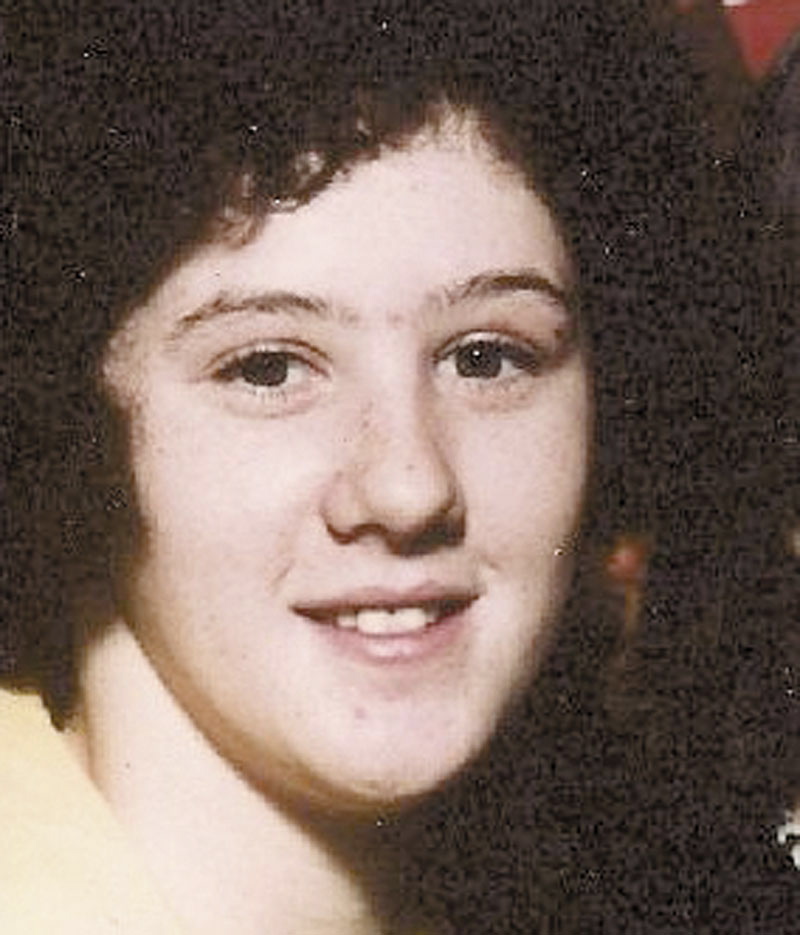An attorney for a Franklin County man argued Wednesday before the Maine Supreme Judicial Court that his client was wrongfully convicted in 2012 of the cold-case murder of Rita St. Peter of Anson based on 32-year-old evidence that he called “entirely circumstantial.”
Jay Mercier, now 58, had remained free for years after St. Peter’s bludgeoned body was found on the side of a dirt road in Anson on July 5, 1980. It wasn’t until 2011 that authorities used DNA evidence to charge him with her murder.
Mercier was found guilty after a jury trial a year later in Somerset County Superior Court and sentenced to serve 70 years in prison.
Mercier’s attorney, Hunter Tzovarras, is now asking the state’s highest court to vacate Mercier’s conviction for four reasons, though Chief Justice Leigh Saufley quickly picked one of Tzovarras’ reasons – that the original medical examiner was unavailable to testify at the trial – as the “most important” issue in contention.
Tzovarras argued that the unavailability of Henry Ryan, the then-chief medical examiner who conducted St. Peter’s autopsy in 1980, to testify at the trial deprived Mercier of his 6th Amendment right to confront his accuser. He said it was not enough that the state’s current Chief Medical Examiner Margaret Greenwald testified at the trial to give her opinion from the autopsy report of what caused St. Peter’s death.
“Over the course of time, physicians are going to retire and move on to their reward,” Saufley said.
Saufley asked Tzovarras what was wrong with the current court practice of allowing cross-examination of the present-day witness. Another justice on the seven-member panel asked Tzovarras what prevented Mercier’s defense attorney from hiring his own legal expert to contest Greenwald’s opinion.
Assistant Attorney General Lara Nomani argued for the state to uphold Mercier’s conviction, saying the prosecutors never introduced Ryan’s autopsy report into evidence to be considered by the jury and presented Greenwald’s testimony as only her opinion.
“She offered her opinions. She offered the materials she reviewed in forming her opinions,” Nomani said.
On the night of her death, 20-year-old St. Peter was intoxicated when she was last seen shortly after midnight on July 5, 1980, leaving the Depot bar in Madison and staggering in the area of the bridge that spanned he Kennebec River between Madison and Anson. She was found the next morning off Campground Road in Anson, bloodied from blunt impact injuries to her head and chest. Authorities said she was sexually assaulted, beaten with a tire iron and run over.
Several witnesses from 1980 had seen Mercier in the general area of the Depot bar shortly before St. Peter was last seen alive and police were able to confirm that tire tracks left near St. Peter’s body were consistent with the tires on Mercier’s 1980 GMC truck. But authorities did not charge him until 2011 when DNA testing on cigarette butts found at the end of Mercier’s driveway gave police probable cause to get a search warrant for a swab from Mercier’s mouth.
Tzovarras also argued that Mercier was wrongfully convicted because police overstepped their bounds when Mercier consented in 1980 to let them search his truck. Police not only searched it but drove it away to a service station to make inked prints from its tires. Tzovarras said police in 1980 also continued to interrogate Mercier for 90 minutes after Mercier said he didn’t want to speak with them, which he contends was a violation of Mercier’s rights.
Tzovarras argued that a prosecutor incorrectly referred to the tire tracks at the murder scene in closing arguments at Mercier’s trial as definitively left by his truck.
The Supreme Judicial Court made no immediate ruling on the appeal and set no time frame for when it rule.
Scott Dolan can be reached at 791-6304 or at:
sdolan@pressherald.com
Twitter: @scottddolan
Send questions/comments to the editors.




Comments are no longer available on this story